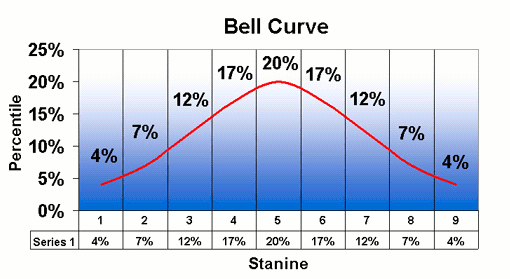Take the Achiever
WHY TEST?
Most organizations understand that effective management and deployment of assets can mean the difference between success and failure. But many organizations fail to consider their most critical asset human capital.
A recent study by McKinsey & Company revealed that A performers tend to be 50-100% more productive than C performers. Clearly, identifying the A performers can enhance an organizations performance. So, how does an employer identify the A performers, and once identified, how does an employer retain them?
The answer to these two questions is simple: Testing.
Testing applicants and employees can clear the air by providing the following benefits:
- Reveals an individual's true talents
- Clear basis for comparison with other candidates
- Comparison of abilities with those required by the job
- Questions to ask in an interview
- Introduces objectivity into the selection process
- Evidence of due diligence in the event of litigation
- Ability to benchmark successful performers
- Basis for developing specific training and development programs
- Insight for managers to know how to best manage subordinates

HOW TO CHOOSE A TEST
There are literally hundreds of tests available that an employer may use. Excluding the specific skills tests and honesty/integrity tests, most employers that use testing want to know about an individual's mental abilities and personality traits. And, they want to know how a person's scores compare to the requirements of the job.
So, how do you choose a test that is right for you? Consider the following:
What Is Measured
Mental skills or intelligence testing alone is an inadequate predictor of successful job performance. An analysis of an individual's personality without insight into how that person learns and processes information is incomplete. Since both are needed, you should choose an instrument that combines mental and personality measurement in one tool.
How Results Are Presented
Most tests provide single score or pass/fail scoring. While easy to interpret, such scoring systems can be difficult to link directly to job requirements, and often lead to over-reliance on test results and subject users to compliance and litigation concerns. Choose a test that provides scores on a scale that can be related to the Normal Distribution (Bell Curve) and that easily relates scores to the job requirements, preferably by means of a benchmark of successful performers.

| Mental Aptitudes - Office Manager | |||
1 2 3 4 5 6 7 8 9 | |||
| MENTAL ACUITY | Slow Learn | [..........] | Fast Learn |
| BUSINESS TERMS | Uninformed | [.............] | Knowledgeable |
| MEMORY RECALL | Unaware | [.............] | Aware |
| VOCABULARY | Limited | [.............] | Strong |
| NUMERICAL PERCEPTION | Imprecise | [.......] | Accurate |
| MECHANICAL INTEREST | Indifferent | Interested | |
| Personality Dimensions - Office Manager | |||
1 2 3 4 5 6 7 8 9 | |||
| ENERGY | Restless | [..........] | Calm |
| FLEXIBILITY | Flexible | [.......] | Rigid |
| ORGANIZATION | Disorganized | [..........] | Planful |
| COMMUNICATION | Reserved | [.......] | Interactive |
| EMOTIONAL DEV | Impatient | [.......] | Tolerant |
| ASSERTIVENESS | Cooperative | [.......] | Authoritative |
| COMPETITIVENESS | Team Player | [.......] | Individualist |
| MENTAL TOUGHNESS | Sensitive | [.......] | Tough |
| QUESTIONING /PROBING | Trusting | [.......] | Skeptical |
| MOTIVATION | Security | [..........] | Recognition |
| Validity Scales | |||
1 2 3 4 5 6 7 8 9 | |||
| DISTORTION | Frank Answer | [................] | Exaggerates |
| EQUIVOCATION | Choose Alter. | [................] | Choose Middle |





